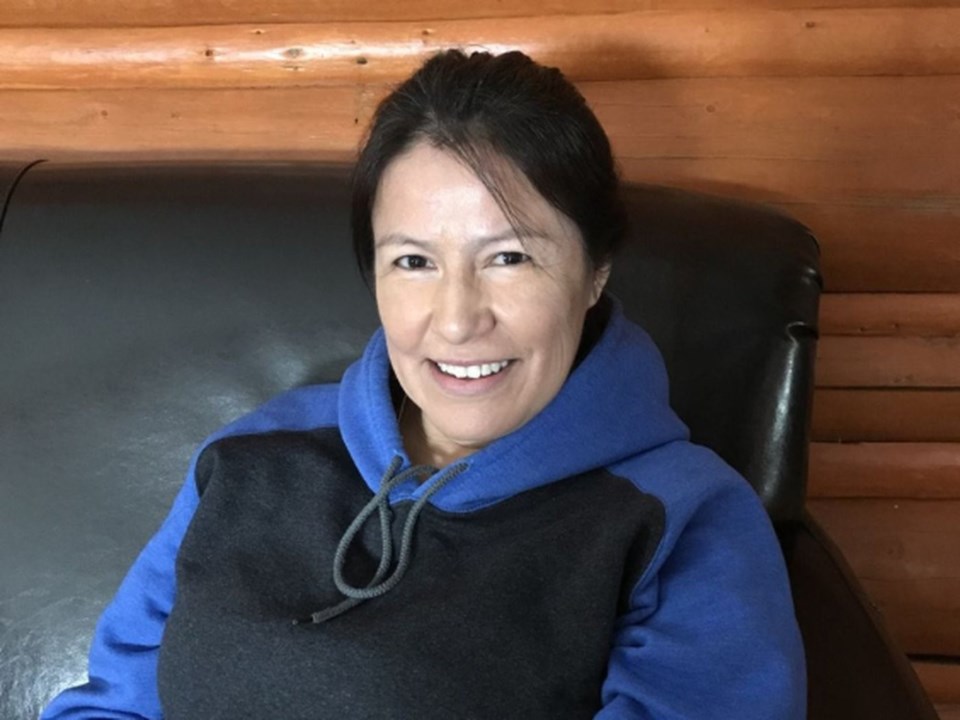Minnie McKenzie’s language is her life’s work.
McKenzie, who develops language curriculum for Lac La Ronge Indian Band (LLRIB), has spent five years of her spare time — early mornings, late evenings, and working holidays — refining the new edition of a dictionary laying out the Th dialect of Woodlands Cree.
The result is a painstaking work, totalling more than 600 pages. She expects to be done by the end of the month.
She noted LLRIB Chief Tammy Cook-Searson spearheaded the project, offering encouragement and motivation for McKenzie as she took on the meticulous research, contacting elders and regularly revising her work.
She believes the finished dictionary will be an asset for students learning their language despite shuttered schools. Even in its unpublished state, it’s already in limited use, she said.
The band plans to release it in print and online, where recordings can help students with pronunciation.
“It’s going to help them a lot,” McKenzie said, noting the lack of language resources for teachers and students.
As a teacher, she’s dedicated her life to closing that gap.
The new dictionary is an updated draft of an older version from the 1970s created by Colin Charles and Keith Goulet. Charles, known for his extensive knowledge of the language, died in 2013.Making matters more difficult, copies of their book have become harder to find, increasing the need for an updated version.
Around that time, LLRIB’s Chief Cook-Searson promised to update the dictionary, unique for its Th dialect, and make it available for students digitally.
“But I didn’t realize how long it would take,” she said. She originally tasked Elena Mirasty to work on the dictionary in 2013, but Mirasty had to stop and take leave in 2015. McKenzie then restarted the work.
That context to her research matters to McKenzie. When she finally finishes the dictionary, she plans to give Charles’s family a copy to reflect his contribution to language education, seven years after he died.
“I look forward to that day,” she said.
While she updates it with new research, McKenzie also includes several old words she estimates are only known by people over 50 years of age.
There’s also more recent additions. In those cases, McKenzie recalled sitting with elders in 1999, showing them items to name. For example, they called a computer “the most amazing object,” while they named an extension chord after the lightning in a thunderstorm.
While she appreciates the language’s ability to adapt, McKenzie’s favourite word in the dictionary is sakihittowin.
“I think about that because it means ‘love.’ Right now, the way things are going with the news and all the negative talk, that’s what I think about that. It keeps people going, I guess,” she said.
For her, it also reflects her love of the language she spent her professional life teaching and sharing.
“I love working with the language …,” she said. “I can’t believe I finished working on this dictionary.”




